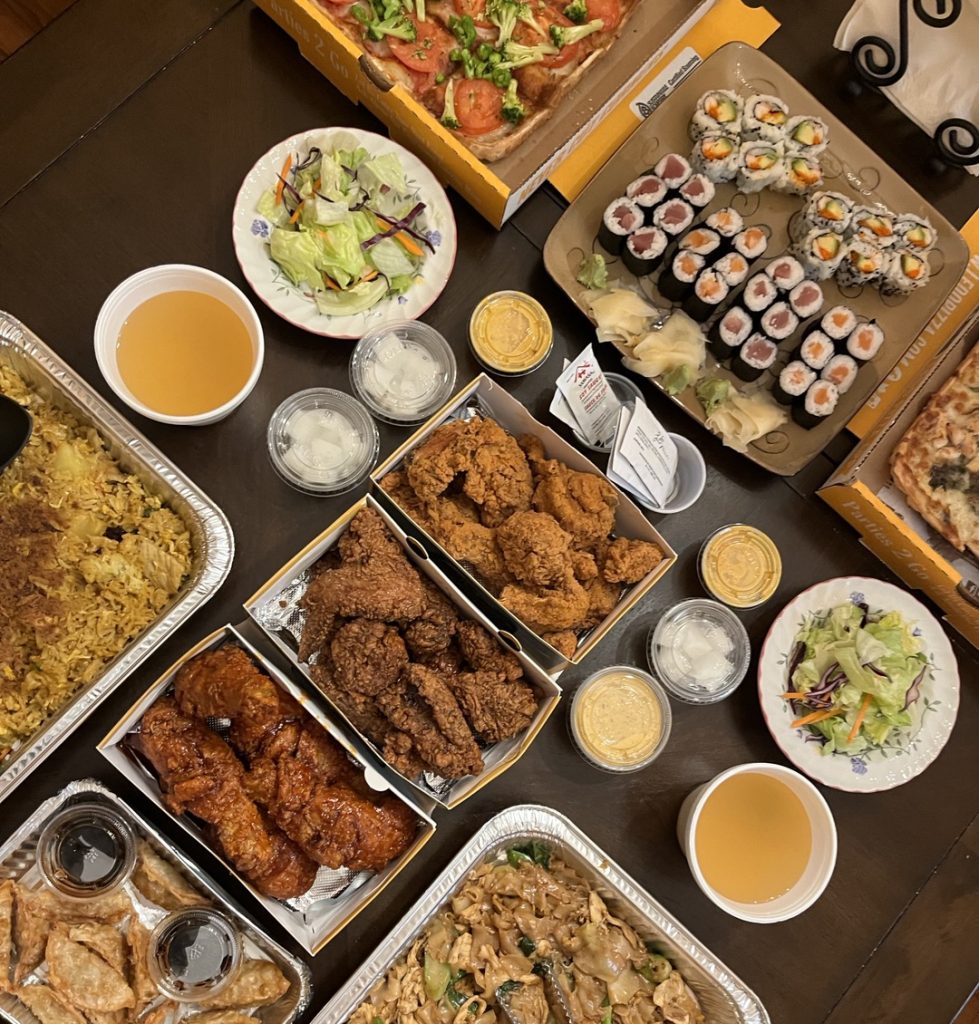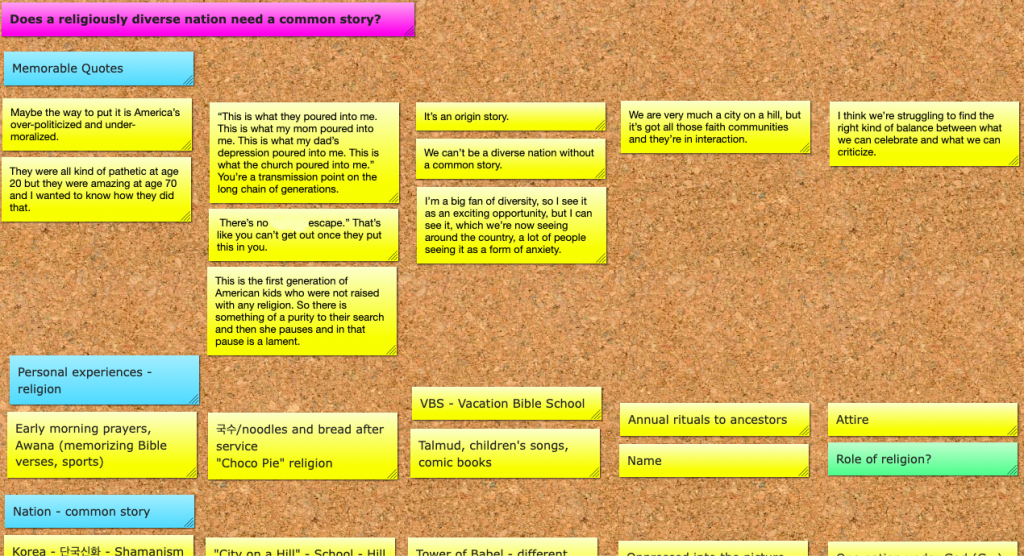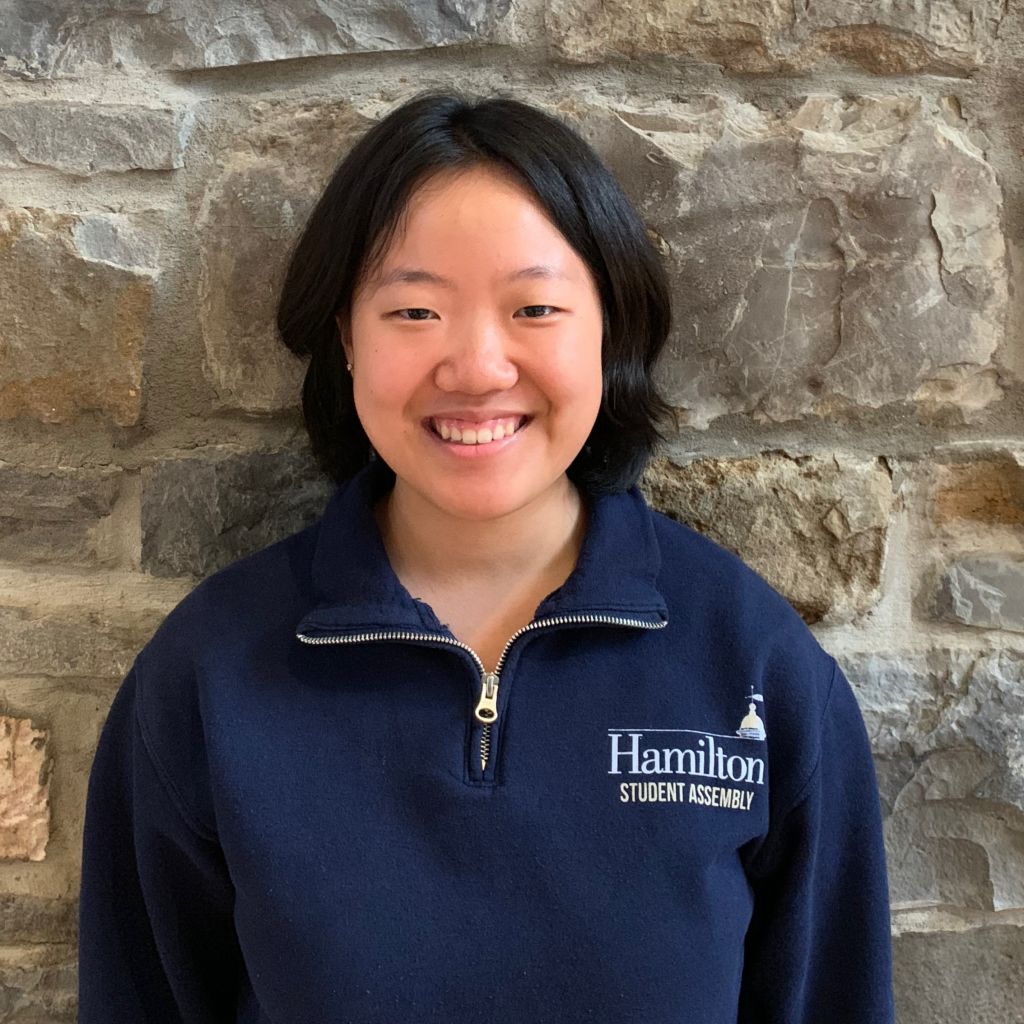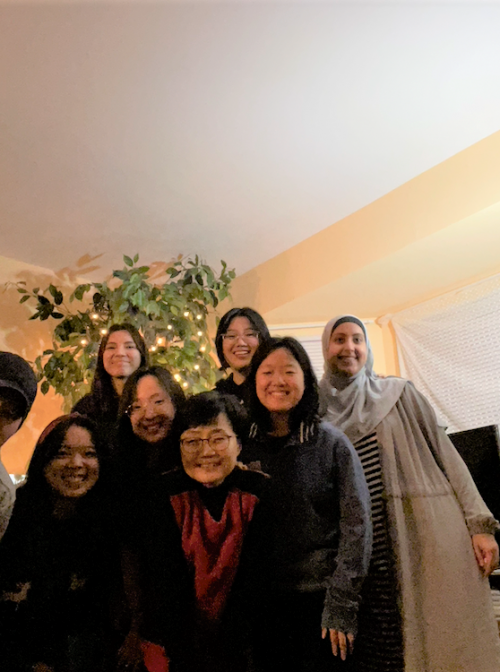How can we have candid conversations across generations?
Growing up in an Asian-American immigrant household, I sometimes found it difficult to connect and hold deep conversations with older generations, especially on issues regarding faith and society. Never did I imagine that I would be combining both to organize an interfaith intergenerational podcast party.
I was first introduced to interfaith work in 2017, as I joined my college’s All Beliefs Union and attended their weekly dinners and discussions. It was a beautiful experience where I saw diverse perspectives coming together for understanding, wisdom, and coexistence. It was also where I got to know Interfaith America and attended the Interfaith Leadership Institute (now Interfaith Leadership Summit) in 2018 in Chicago. Following the pandemic and my graduation, however, I felt detached from a community. Thus, when I heard about the opportunity to host a podcast party through the Podcast Engagement Awards for Emerging Leaders grant, I eagerly applied, hoping to convene a community I had missed. While skimming through the episodes, the particular one with David Brooks, “Does a religiously diverse nation need a common story?” caught my eye, as I thought about the changing religious landscape in America, which my family was also a part of with our immigration.
Preparing for a podcast party was more work than I had expected, yet very rewarding and enjoyable. From decorating the house to ordering food that met attendees’ religious dietary restrictions to leading a hybrid discussion, I learned a lot about what it takes to plan an interfaith event. Referencing the listening guide, I prepared potential discussion questions, a summary of the podcast, and even a translation of some key words and phrases for our older attendees less proficient in English. A new tool that I enjoyed using was an online sticky notes platform that helped record memorable quotes and discussion points. Of course, I couldn’t forget good music – winter jazz, carols, and Bruce Springsteen, as Springsteen was brought up in the conversation between Brooks and Eboo Patel!

With attendees ranging from baby boomers to Generation Z, it was interesting noting the similarities and differences in our religious experiences. When discussing our personal experiences with religion, older adults told stories of how food would draw them to church services. In fact, Christianity was sometimes nicknamed “Choco Pie (a famous Korean snack) religion.” That was an experience that younger attendees could relate to, as we laughed over how we would sleepily drag our feet to morning prayers for noodles or religious services for snacks and goodie bags. An interesting question asked by an older attendee was whether younger generations appreciated or resented being “planted” a religion by older generations. If the former, why is our generation becoming less and less religious?

The big question underlying the podcast and the evening was if a religiously diverse nation such as America needed a common story. While attendees agreed that common stories were important for a cohesive society, we wondered if religion needed to play a part in it and if we had to believe the common story for it to be meaningful. One told us the Korean myth of Dangun, the founding story of Korea. In the story, a bear and a tiger pray to God to be human. God gives them a task to only eat garlic and greens and stay in a cave for 100 days. Only the bear completes the mission and turns into a beautiful woman, later marrying the son of God and giving birth to Dangun, the founder of ancient Korea. While it is a fictional story that is based on nature-worshiping traditions, it was interesting to note that it was still taught in Korean schools and bound the country together, despite Korea being mainly Christians, atheists, and Buddhists today. No one believes it, yet they know and accept it. Thus, we began to question: Is it important for common stories to be believed? Or is it enough for stories to be known and accepted? Patel’s re-imagination of America as Medina confused us initially, since it was most people’s first time hearing it, but his explanation helped us to see the significance and hope behind it. While it was a different belief than mine, I now understood it, and that is the beauty and power of interfaith dialogues. Despite differences, we move one step closer to building a common story of a nation, and of humanity.
New topics blossomed organically throughout the evening. We got into a debate on the commercialization and secularization of religious holidays, talked about food culture during holidays (why do some religions feast and others fast?), and shared reflections on 2022 and hopes for the new year. “It will be nice to have another gathering in 2023,” my sister, who attended an interfaith event for the first time, remarked. I wholeheartedly agreed, as the evening wrapped up and attendees returned home, rejuvenated by food, fun, and faith.

Jiin Jeong is a graduate student studying cybersecurity at Carnegie Mellon University. Raised as a non-denominational Protestant Christian, she became interested in interfaith leadership through her college’s All Beliefs Union. Some of her favorite memories include talking about Korean Christianity as a panelist for a “Faith Around the World” event and holding an interfaith-themed rock climbing session. Her interests are traveling, playing board games, and exploring how technology can be used for societal good.




